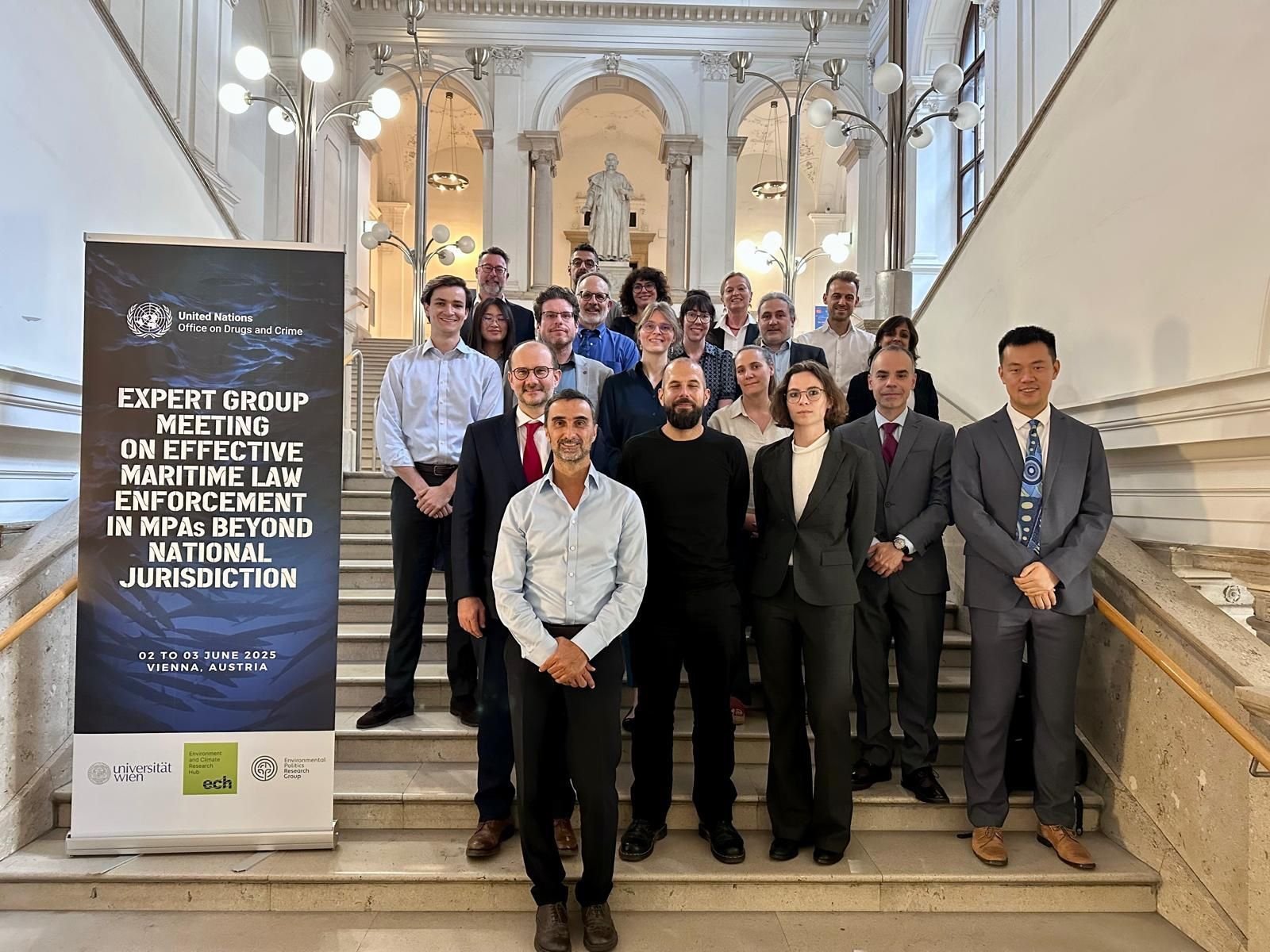One of the few drawbacks of living in New Zealand at the far end of the world is that you are distant from everything.
Furthermore, considering I’m self-employed, I adhere to a self-imposed environmental rule of not flying anywhere for less than 10 days. Additionally, for flights over 12 hrs, I need (as a 60-year-old, almost 2 mt tall man) at least a premium economy seat (as I literally don’t fit in economy seats)…
This means I usually can’t afford to attend meetings, congresses, workshops, and expert consultations, even those like the one in this case, where I’m a co-author of the draft.
Back in January, I was contracted by the United Nations Office on Drugs and Crime (UNODC) Maritime Crime Programme (via Giuseppe Sernia and Niels Peters Williams) along with two renowned academics, Antonios Tzanakopoulos and Efthymios Papastavridis, to write a draft for an expert group meeting on Effective Maritime Law Enforcement in Marine Protected Areas Beyond National Jurisdiction… needless to say, a complex and timely topic in light of the present status of the High Seas agreement (the BBNJ Agreement).
It was an unusual contract for me, yet one I dived in with gusto under the principle that my 1st skipper told me: “In life, either you learn or you make money; in rare chances, you do both… that is a bingo moment.”
And indeed it was “a bingo” assignment while I was in an awkward position on the drafting team… I was the “how” man, and my two colleagues are “who” specialists. The issue is not “how” to do monitoring and surveillance (technically and operationally, it is all possible today)… but “who” will take responsibility and fund the “how”.
In any case, an excellent expert group has met in Vienna for the last 2 days to discuss the study we produced. The fact that it was in Vienna is poignant… as I still have family there since my dad was born in Austria and has an Austrian passport… so I would have loved to have gone… Yet I also have a family compromise from my mother’s side.
The feedback has been excellent! It looks like my "how" part—on the technology and operations side—was received well and considered helpful. Yet, as expected, most of the discussions they have been having were more legal: regime interaction between BBNJ and other regimes, limits of jurisdiction, and limits of triggering criminal law.
As a non-lawyer, but an MCS practitioner and a UNCLOS geek, it all comes down to flag state responsibility… And I like to say: flag state responsibility is the biggest oxymoron in UNCLOS
I shall share the final version when it is done. For now, I sincerely thank all the people mentioned above for their patience and support over the writing process.

